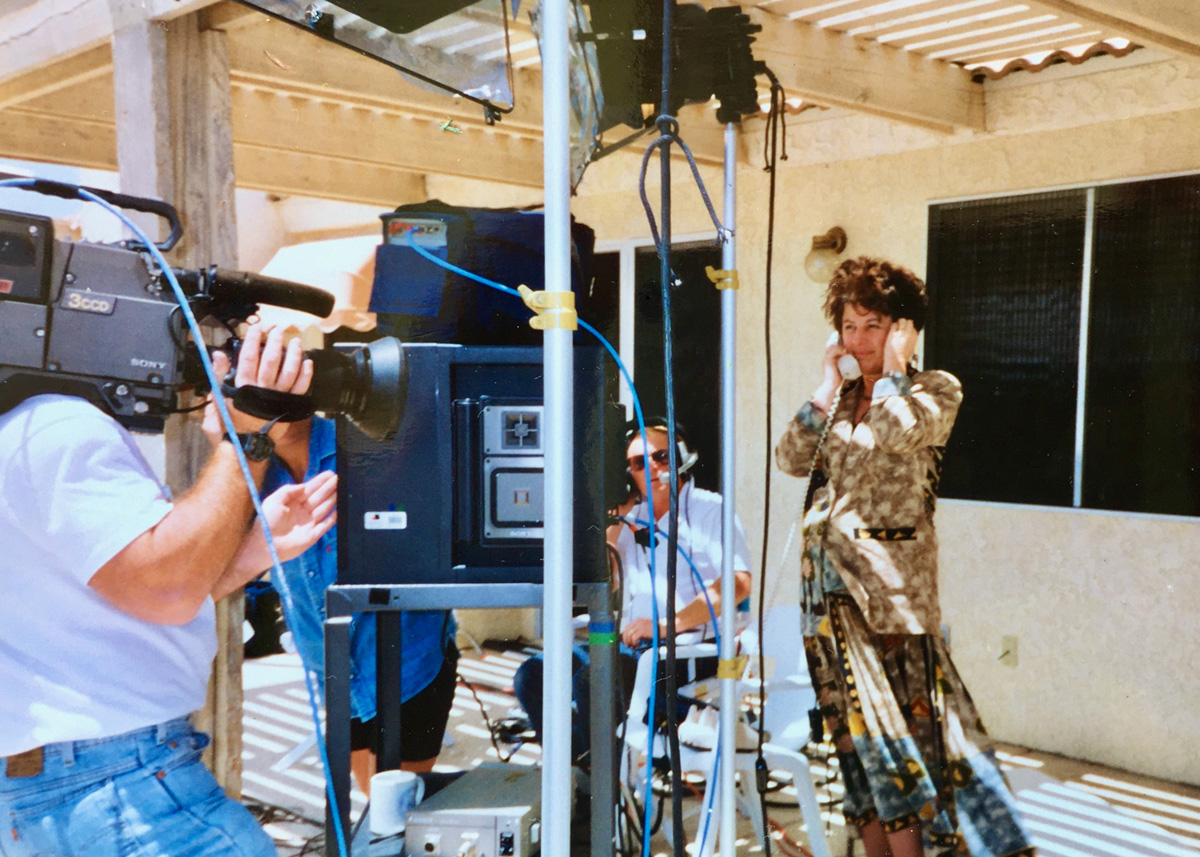When I was two and a half years old, I was given a baby sister. All mine to play with, to chatter with, to pass on the lessons of life as I was learning them myself. Save her the time, right? Although I may have been a bit bossy about it all. Later, once I’d started school, I lined up my dolls for formal instruction. They were infinitely easier to handle.
Since those early days, I’ve had lots more opportunities to teach. In all kinds of settings on a sweet variety of subjects. I LOVE teaching not only because I learn so much from students but also for the creative connections that it can forge.
These past few years, I've been focusing on Accent Work. One of the more embarrassing things about navigating the world in a 'foreign' language, once you've mastered the general rules of how that language works, is that pesky little matter of mastering some form of acceptable, neutral accent. A little bit of an accent can be charming. Too strong an accent, though, gets in the way. It can, automatically, I'm sorry to say, encourage people to judge you. Studies show, extensively, that an accent 1) reduces your listener's attention span, so your ideas may not get taken seriously, and consequently, 2) can get in the way of promotions in the workplace. And we're talking about people who are fluent and highly functional.
If Meryl Streep can do it for a language she doesn't even speak, then you can certainly make it happen in a language you do speak!
But here's a caveat: honestly, no matter how much you practice, you'll probably not pass for a native speaker. Ever. But you can learn to regulate your accent, neutralize it, so to speak. A neutral accent is less distracting.
This does take work. And may involve changing some long-standing habits: the way you hold and move your mouth, your jaw, your chin, to name just a few examples. You'll become more aware of your breathing patterns. And you'll feel like such an idiot, but that's OK. It's part of the process :).
I've had fun neutralizing my own accent in a number of languages over the years, and have, more recently, worked on an ad hoc basis with several clients from different backgrounds -from a musician singing in a foreign language, to the wife of a high mucky-muck in Washington D.C. whose husband wanted her to be more comfortable in diplomatic social situations, to public speakers preparing to wow an audience in a foreign country.
So here's the first step: s-l-o-w- d-o-w-n. S-l—o—w it d-o-h-w-n, people. Way down. Which is counter-intuitive if you're eager to show fluency and ease of speaking. For most people this is the hardest part, but it's the first step, as it allows you to pay attention to how you're forming the words. If you're interested in exploring the possibilities, please feel free to contact me.
Testimonials:
"As Court Interpreter Program Coordinator for the State of Washington, I had the honor of working with Ine-Marie on the development and implementation of a court interpreter training program. After many years of marginal results with standard industry trainings, Ine-Marie’s refreshing methods were highly successful.
Ine takes a smart, experienced-based approach in her curriculum development and classroom instruction. She doesn’t train with the goal of just scoring well on an exam. Instead she builds interpreters to perform better & stronger. She prioritized the use of “real-world” scripts and recordings for instructional materials, and coached the interpreters through the intimidating process of critical self-analysis. She listens carefully to students, gives thoughtful feedback, and fosters a culture of collaboration and creativity in the classroom.
Her results also speak for themselves. Our class of 16 interpreters included seven different languages. Of that group, eight proceeded to pass the NCSC court certification exam in Spanish, Korean, Vietnamese, and Mandarin. (The average passing rate for these exams in Spanish is approximately 20%, and much lower for other languages.) But more importantly, the interpreters in the class built strong connections and continued to support one another for years after the tests had long since passed. Ine-Marie not only gave our students practical skills and information for success, but she also created a culture of collaboration that’s hugely beneficial in the interpreting community."
Katrin Johnson
Lead Managing Attorney – Trial Level Program
Washington State Office of Public Defense
"Ine (van Dam) has been an invaluable resource in her coaching of French enunciation for a song I translated, arranged and performed on video. With mere French 101, I stepped into the vocals uncertain, but Ine's warm yet professional presence instantly put me at ease. She's an excellent coach."
Chris Sohre
Musican / Composer / Producer
chrissohre.com
" ... Ine was both a favorite professor and influential [while I was a student at the Monterey Institute]. When I say influential, I am thinking of the impact she had on my thinking, not just simultaneous interpretation, which is what she was teaching me, but also on the thinking process itself. Later, at the UN., I ran a 'trainer of trainers' class, and asked her to give talks as an outside expert for my Brazilian and later Arab students and noticed that the students experience her much as I had years earlier, which was reflected in their many questions for her and their subsequent feedback to me."
Sheila Shermet
Chief, English Booth
United Nations, New York
Awards:
Allen Griffin Award for Excellence in Teaching, at the Monterey (now Middlebury) Institute for International Studies. May 1987
